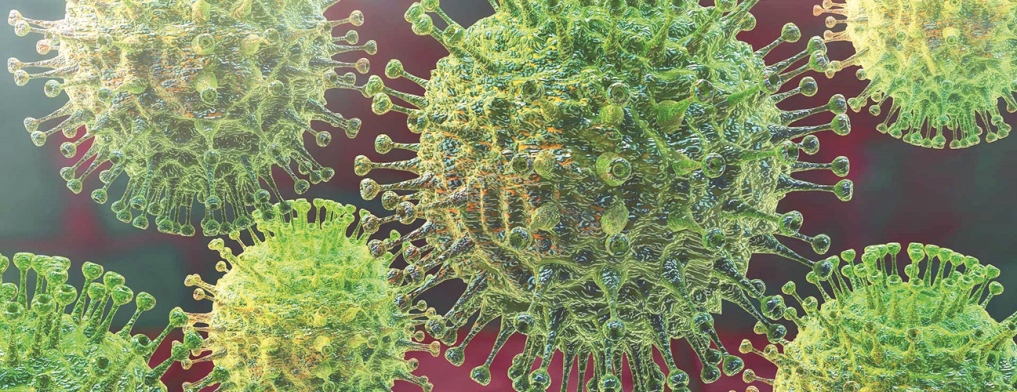Elders may be at risk, but they say they have seen worse than COVID-19

By Aashish Mishra
Lalitpur, Mar. 25: There may be a big mystery and uncertainty surrounding the ongoing coronavirus pandemic, but one thing is as clear as day - people over 60, and especially over 80, are far more vulnerable to severe or fatal infection than those who are younger. Most of the fatalities recorded across the world have been people who are elderly or those suffering from pre-existing conditions or both.
Nepal’s own protocol for the management of COVID-19 cases prioritises people above the age of 60 for admission into and isolation in healthcare facilities. Older people are at a greater risk of getting infected and then, dying from that infection. So, logic dictates that they should be the ones most worried and alert about the virus entering the country. Yet, they don’t seem to be much concerned about it.
Gyanu Maya Shrestha is 68 years old, but still she was seen out on the streets of Patandhoka at 8 in the morning on Tuesday enjoying her morning walk. She knew that a case had been detected in Nepal on Monday and about the government-imposed lockdown. But she still chose to go out on her morning walk.
“We shouldn’t let things like this disrupt our daily schedules,” she said defiantly, “We have faced worse things than this. The virus will not spread in Nepal.” Balaram Upreti, 72, was walking around Balkumari at 11am smoking a cigarette, admiring the empty Ring Road. “I could play ball in the middle of the road and nothing would happen to me,” he said, letting out a loud laugh, “When will you ever get to see Kathmandu like this again?”
Upreti, too, knew about the lockdown but chose to ignore it. “I can’t stay at home all day. I need fresh air,” he said. He was aware about COVID-19, and its life-threatening nature but was in denial that he would contract it. “Lord Pashupatinath protected us against the swine flu, against Ebola and He will see us through corona as well. That’s why it hasn’t spread in Nepal till now.”
Both Shrestha and Upreti had masks on, though, unlike many senior citizens who were basking in the sun at Patan Durbar Square with uncovered faces. Many of them had masks in their pockets or were carrying them in their hands. Yet, they did not want to wear them.
Upon inquiry, many of them reasoned that the mask made it harder to breathe while some said that it made talking to their peers difficult.
They also knew of the week-long lockdown, but still liked to gather in public. They even argued with the policemen who told them to go home.
This shows that the disease which has killed over 16,000 people worldwide as of Tuesday, still isn’t a priority for most of the older members of our society.
“This is because the older people haven’t comprehended the deadly nature of the virus,” said Bishal Singjangu. He was a volunteer talking to people at Patan Durbar Square about the seriousness of the situation and asking them to go home.
“Some understand, some don’t; the best you can do is make them aware and hope they heed your advice,” he said.
According to Singjangu, the older generations have gone through numerous life-changing events like movements, wars, famines, political upheavals, which have made them immune to crises like these. Also, he said that elders aren’t able to grasp the situation because most of the coverage of the virus uses technical terms and presents figures and statistics which are very unrelatable for them.
“How can a person used to hearing about diseases like Haija and Jhada Pakhala fathom terms like COVID-19 and SARS-CoV-2?” he explained, adding, “If you only look at the symptoms without understanding the context, you will think that it is a case of a bad cold. That is what the elderly individuals are presuming.”
But elderlies are not the only ones out in the streets. Many young and aware people are out with their friends, riding motorbikes and taking the lockdown as a holiday. This shows just how lightly Nepalis are taking this pandemic.
Recent News

Do not make expressions casting dout on election: EC
14 Apr, 2022
CM Bhatta says may New Year 2079 BS inspire positive thinking
14 Apr, 2022
Three new cases, 44 recoveries in 24 hours
14 Apr, 2022
689 climbers of 84 teams so far acquire permits for climbing various peaks this spring season
14 Apr, 2022
How the rising cost of living crisis is impacting Nepal
14 Apr, 2022
US military confirms an interstellar meteor collided with Earth
14 Apr, 2022
Valneva Covid vaccine approved for use in UK
14 Apr, 2022
Chair Prachanda highlights need of unity among Maoist, Communist forces
14 Apr, 2022
Ranbir Kapoor and Alia Bhatt: Bollywood toasts star couple on wedding
14 Apr, 2022
President Bhandari confers decorations (Photo Feature)
14 Apr, 2022











